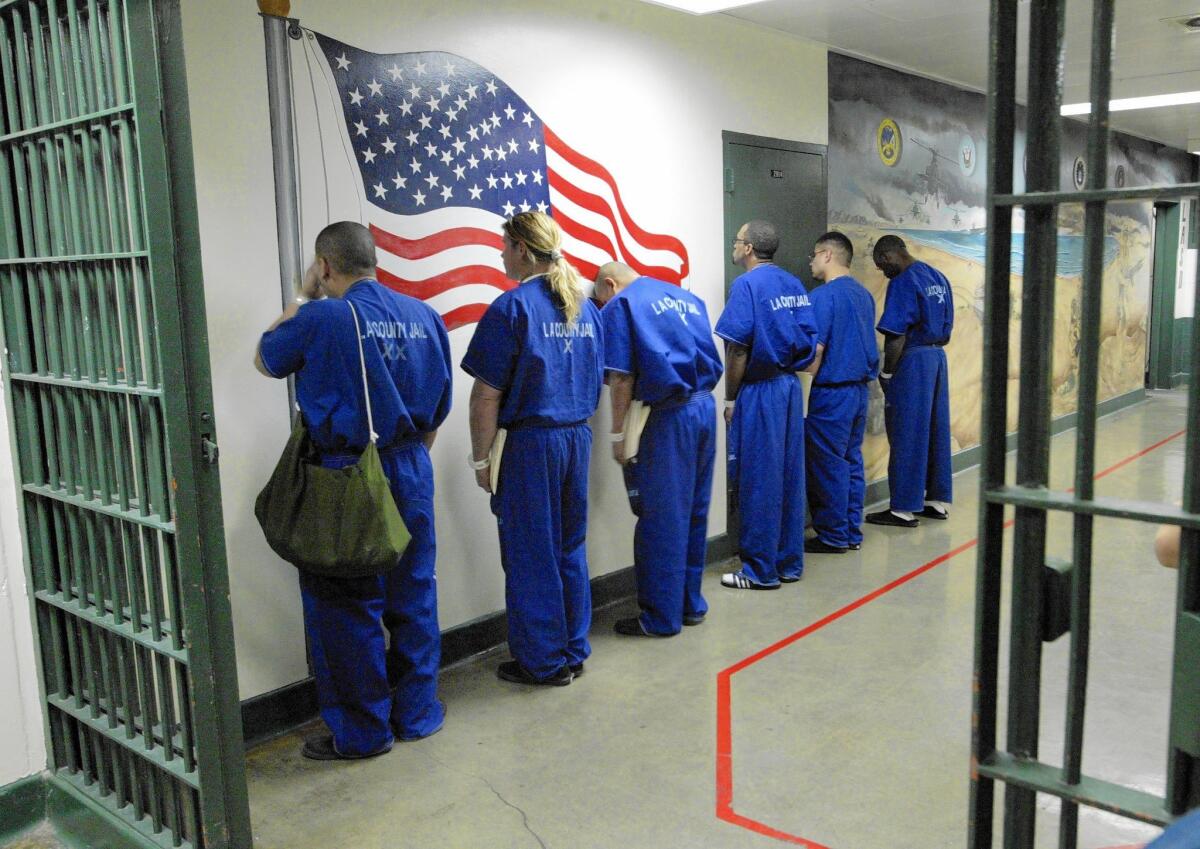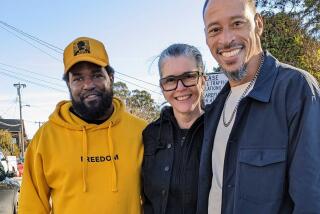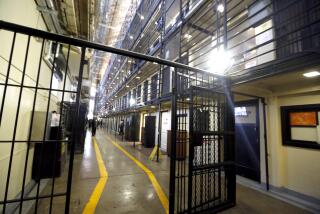State ordered to complete parole program plan by Dec. 1

Saying state officials failed to comply with an order to grant many two-time felons early parole from prison, federal judges on Friday said the state must quickly launch hearings that could free those inmates.
The judges gave the state until January to begin holding parole hearings for second-strike felons who have served half of their sentences. The Friday order, which restated a February 2014 directive that California further reduce prison crowding, applies only to those whose crimes were not violent.
In February, California officials were ordered to take a number of steps to reduce inmate numbers. At the same time, federal judges agreed to the state’s request for a two-year extension to meet population caps the courts had been trying to enforce for years.
Gov. Jerry Brown’s corrections department did move thousands of inmates out of state-owned prisons while expanding parole programs for frail and elderly inmates. Corrections officials also increased the sentence reductions some nonviolent felons could earn.
Those moves cut California’s prison population by 1,000 inmates, meeting short-term goals even though state projections show inmate numbers will continue to rise. Judges had sought additional actions to produce a “durable” long-term solution.
The California Department of Corrections and Rehabilitation has failed to adopt those steps, including the granting of early parole to second-strikers, the judges noted. In October, prison officials told judges that creating such a parole program was “a time-consuming process” and moving faster would “endanger the public.” They did not expect to finish until July 2015.
In an order several weeks ago, the judges said they were “skeptical” of such a delay. On Friday, they gave the state until Dec. 1 to finish plans for the parole program and ordered it in place by January.
“The record contains no evidence that defendants cannot implement the required parole process by that date, 11 months after they agreed to do so ‘promptly,’ ” the judges wrote.
Corrections department spokeswoman Deborah Hoffman said the agency would comply with the order.
The judges’ insistence that state officials do as previously directed “is a recognition that the three-strikes law was both ineffective and created an incredible drain on prison resources,” said Mike Romano, director of the Three Strikes Project at Stanford University, which represents inmates seeking resentencing.
In 2013, the most recent state records show, there were more than 14,000 inmates in prison for nonviolent second-strike crimes.
Among the court’s orders in February was that the state increase the time that second-strikers could shave from their sentences by completing prison rehabilitation or education programs. Officials are releasing each month about 500 such repeat offenders an average of six weeks early.
Prison officials do not apply the credits to sex offenders, contending that would endanger public safety. Lawyers for prisoners argue that sex offenders should be included in the new credit program and have asked the judges to weigh in.
Also unresolved is inmates’ petition to force the state to double the good-time credit available to most minimum custody prisoners — also part of the February order. State lawyers argue that California cannot afford to lose a vital prison labor force.
Minimum custody inmates hold prison jobs as janitors, groundskeepers and kitchen workers. If that labor pool were to shrink, the state contends it would have to pull yet other minimum custody prisoners off important firefighting crews, jeopardizing public safety.
State records show the prison system pays those inmates 8 cents an hour to 37 cents an hour, but keeps 55% of it for restitution programs.
Twitter: @paigestjohn
More to Read
Start your day right
Sign up for Essential California for news, features and recommendations from the L.A. Times and beyond in your inbox six days a week.
You may occasionally receive promotional content from the Los Angeles Times.







